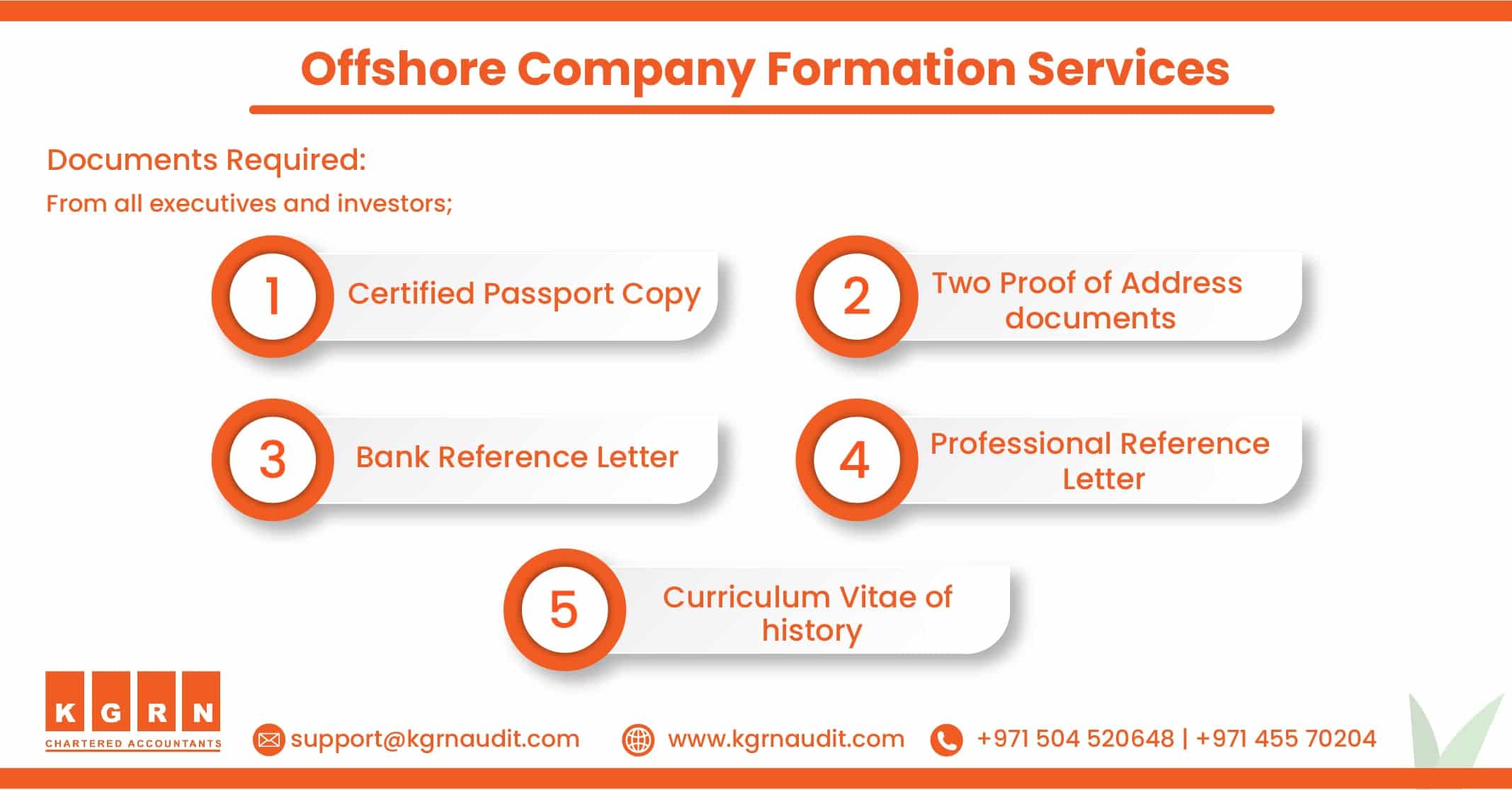Navigating the World of International Business: Insights on Offshore Company Formation
Offshore Company Formation provides a tactical method for worldwide organization operations. It offers notable advantages, such as tax obligation optimization and improved personal privacy. Nonetheless, the procedure is not without its challenges. Recognizing the complexities of regulative needs and numerous jurisdictions is essential. As businesses consider these choices, the steps entailed can significantly influence their lasting success. What are the vital aspects that can bring about reliable offshore monitoring?
Understanding Offshore Business: Meaning and Function
Offshore firms have come to be a focal point in international service discussions due to their unique legal and financial structures. These entities are developed in jurisdictions beyond the owner's nation of residence, commonly with favorable regulatory settings. Typically, offshore firms offer different purposes, such as property protection, tax obligation optimization, and improved personal privacy. They can operate in several sectors consisting of profession, technology, and finance, offering flexibility for international operations.The defining characteristic of an offshore Company is its capability to perform business worldwide while gaining from lowered tax responsibilities and governing problems. This structure attract capitalists and business owners seeking to expand their profiles and take care of dangers effectively. Additionally, numerous offshore jurisdictions offer incentives to bring in international financial investment, bring about a rise in the Formation of these business. Comprehending the meaning and purpose of offshore business is necessary for navigating through the intricacies of international commerce and funding flow.
Key Benefits of Offshore Company Formation
The Formation of an overseas Company offers a number of compelling benefits that draw in investors and entrepreneurs alike. One of the main advantages is tax optimization; several jurisdictions provide positive tax obligation rates or exceptions, permitting organizations to make the most of revenues. In addition, offshore business usually enjoy higher discretion, as several jurisdictions have stringent personal privacy legislations safeguarding the identifications of Company owners and shareholders.Another considerable advantage is asset defense. Offshore entities can secure assets from political instability and financial downturns in the owner's home nation. Moreover, these firms can facilitate worldwide trade, giving simple accessibility to worldwide markets and simplifying cross-border transactions.The versatility in corporate structure likewise attract local business owner, as offshore companies can be tailored to meet certain functional requirements. On the whole, the tactical Formation of an overseas Company can result in boosted economic protection, functional efficiency, and a durable international presence.

Usual Difficulties in Establishing Offshore Entities
Establishing offshore entities provides a number of difficulties that businesses have to navigate. Key problems include regulative conformity, which can vary significantly throughout jurisdictions, and the effect of cultural distinctions on operations. Furthermore, companies must consider the dangers and prices related to keeping an overseas visibility, which can influence total feasibility.
Governing Compliance Issues
When they seek to develop overseas entities, steering governing compliance problems poses significant challenges for services. Each jurisdiction has its own set of regulations and guidelines, which can vary commonly and might be challenging to navigate. Firms typically deal with obstacles relevant to tax obligation conformity, anti-money laundering policies, and reporting demands. Additionally, adjustments in worldwide tax obligation regulations can develop unpredictability, making it important for businesses to remain upgraded on compliance responsibilities. Failure to stick to these policies can cause severe fines, consisting of fines and reputational damage. As a result, involving and comprehending the legal structure with regional experts is essential for effective overseas procedures, making sure that organizations can operate within the confines of the law while optimizing their global approach.
Cultural Distinctions Impact

Price Factors To Consider and Risks
Steering via the financial landscape of overseas entity Formation offers various expense factors to consider and intrinsic threats. Preliminary setup expenses usually consist of lawful costs, enrollment expenditures, and compliance charges, which can build up significantly. Furthermore, continuous upkeep expenditures such as annual fees and accountancy services should be factored in. Rising and fall regulatory atmospheres in different jurisdictions posture threats, potentially leading to unexpected prices or lawful problems. Services may likewise experience challenges associated with taxes, banking, and reputational concerns, which can affect productivity and operational efficiency. Prospective entrepreneurs must perform complete due persistance and economic forecasting to mitigate these dangers and assure sustainable growth. Recognizing these cost considerations is essential for successful offshore organization ventures.
Steps to Establish Up an Offshore Company
Establishing an offshore Company entails several essential steps that need careful consideration. Key variables include making sure and picking the proper territory compliance with local regulations, along with collecting essential paperwork. Comprehending these components is crucial for a successful offshore organization configuration.
Picking the Right Jurisdiction
Selecting the best jurisdiction is critical for any individual aiming to establish up an offshore Company, as it can substantially impact business's lawful responsibilities, tax obligation obligations, and functional ease. Different variables ought to be thought about, consisting of the political stability, regulatory environment, and tax obligation motivations supplied by possible territories. Popular options typically consist of nations with positive tax obligation regimes, such as the British Virgin Islands or Cayman Islands, due to their low or zero tax obligation rates. Additionally, the simplicity of operating and the track record of the jurisdiction can influence investor self-confidence and market gain access to. Ultimately, an educated decision based on complete study will certainly assure the offshore Company is positioned for long-lasting success and compliance with worldwide requirements.
Needed Paperwork and Compliance
When establishing an overseas Company, understanding the essential documentation and compliance needs is vital to assure a smooth process. Secret records normally include a certificate of unification, a memorandum and short articles of organization, and proof of identification for supervisors and investors. Some jurisdictions may call for additional details, such as business strategies or bank recommendations. Conformity with regional regulations is important, which often includes assigning a registered representative and preserving a licensed office. Routine coverage and adherence to tax obligation obligations need to also be thought about. Failing to follow these requirements can bring about fines and even dissolution of the Company. Extensive prep work and examination with lawful professionals can help navigate these complexities effectively.
Choosing the Right Territory for Your Offshore Company
How can one identify the most ideal territory for an overseas Company? Selecting the ideal territory needs cautious factor to consider of multiple factors. The lawful and tax setting plays a crucial duty; jurisdictions with favorable tax routines may improve company earnings. In addition, the political security and financial environment of a location can influence long-lasting service viability.Another crucial element is the availability of financial services and financial infrastructure, which facilitate smooth operations. Prospective company owner ought to additionally take into consideration the convenience of operating, consisting of the rate of enrollment and the clearness of regulations.Furthermore, language barriers and social distinctions can impact procedures; consequently, lining up with a territory that straightens with company goals and individual convenience is important. Inevitably, detailed research study and specialist guidance can lead business owners in making an educated decision that lines up with their strategic objectives.
Compliance and Governing Considerations

Ideal Practices for Taking Care Of an Offshore Service
Taking care of an overseas business needs strategic preparation and precise execution to maximize performance and alleviate threats. Initially, establishing a robust conformity structure is important to navigate differing laws throughout jurisdictions. Routine audits and threat assessments assist recognize prospective vulnerabilities.Moreover, leveraging regional competence via collaborations with neighborhood experts can improve operational efficiency and cultural understanding. Using technology, such as cloud-based monitoring systems, enhances interaction and information monitoring, allowing much better decision-making. Furthermore, keeping clear financial documents and making sure timely tax filings are essential to copyright the Company's integrity. Buying team training and development fosters a knowledgeable labor force, promoting advancement and adaptability.Finally, developing clear efficiency metrics and vital performance indicators (KPIs) helps evaluate organization development and educate strategic adjustments. By sticking to these finest methods, companies can successfully handle their offshore operations, ensuring long-lasting success and sustainability in a competitive global marketplace.
Regularly Asked Questions
What Is the Expense of Developing an Offshore Company?
The cost of forming an offshore Company varies widely depending on jurisdiction, lawful demands, and solutions needed. Typically, expenses can vary from a few hundred to several thousand dollars, consisting of registration, conformity, and annual fees.
The length of time Does It Require To Establish an Offshore Entity?
The time required to develop an offshore entity differs substantially, generally varying from a few days to a number of weeks (offshore company formation). Factors influencing this period include jurisdiction, needed paperwork, and the effectiveness check here of the provider included
Can Individuals Kind Offshore Companies Without a Company Partner?
People can undoubtedly create overseas business without a business companion. Several jurisdictions permit single-member entities, encouraging business owners to establish and manage their companies independently, while still gaining from prospective tax obligation benefits and legal defenses.
Are There Any Kind Of Tax Obligation Advantages for Foreign Investors?

What Sort Of Organizations Commonly Make Use Of Offshore Firms?
Offshore companies are often utilized by different industries, including ecommerce, innovation, and finance. These entities usually offer objectives such as asset security, tax optimization, and personal privacy, interesting both multinational corporations and private business owners. Offshore firms have become a focal factor in worldwide company discussions due to their special legal and economic structures. They can run in multiple sectors including trade, finance, and modern technology, providing flexibility for worldwide operations.The specifying attribute of an overseas Company is its capability to conduct organization globally while benefiting from lowered tax obligation obligations and governing concerns. Furthermore, offshore firms commonly enjoy greater privacy, as many jurisdictions have rigid personal privacy legislations shielding the identifications of Company owners and shareholders.Another considerable benefit is asset defense. These firms can promote international profession, offering easy accessibility to international markets and simplifying cross-border transactions.The flexibility in corporate framework also charms to organization owners, as overseas business can be customized to meet specific functional demands. Selecting the best territory is crucial for anyone looking to set up an overseas Company, as it can considerably influence the service's legal responsibilities, tax obligation liabilities, and operational simplicity.